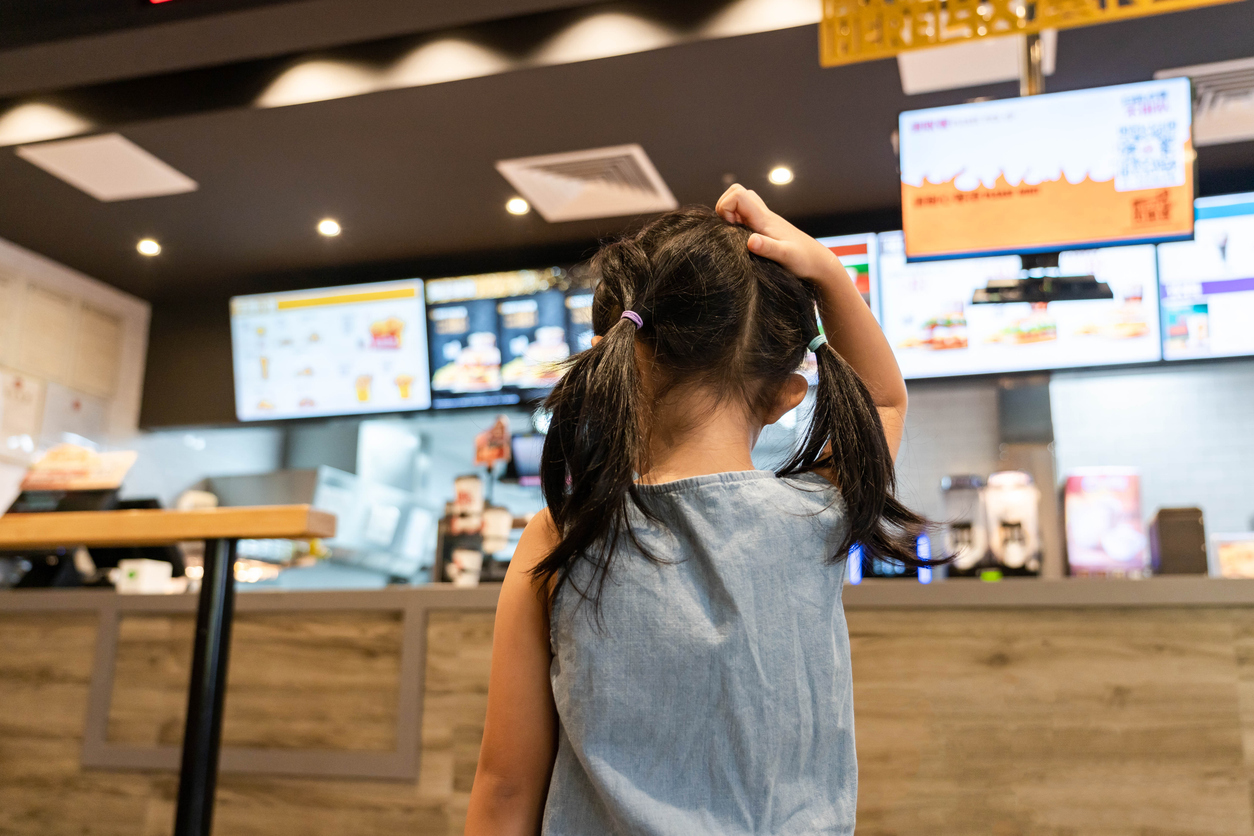Conversational AI for restaurants refers to technology that allows computers to communicate with people naturally, like having a conversation. This technology can help restaurants connect better with their customers, making it easier to place orders, ask questions, and get the necessary information.
With conversational AI, restaurants can use chatbots on their websites and social media platforms to handle customer inquiries, take reservations, and even manage food delivery orders. This means customers can get answers quickly without waiting for a staff member. By using this technology, restaurants can provide a smoother and more enjoyable experience for their diners, increasing customer satisfaction and loyalty.
What Is Conversational AI?
Conversational AI refers to technologies that enable machines to interact with humans in a natural, conversational way. It involves systems designed to understand and respond to user inputs using everyday language, making communication with computers more intuitive.
Conversational AI recognizes and processes inputs through text or speech to provide relevant responses. These systems use natural language processing (NLP) and machine learning to analyze what users say or type, identify the intent behind the message, and generate a meaningful reply. This process allows for seamless interactions, mimicking human conversation and improving the user experience.
Benefits Of Conversational AI For Restaurants
Conversational AI is transforming the restaurant industry by streamlining operations and improving customer interactions. Here are some of the benefits that restaurants can have:
Enhanced Customer Service And Experience
AI-driven chatbots and virtual assistants provide 24/7 customer support, allowing diners to make reservations, ask questions, or place orders anytime. These tools offer immediate responses, reducing wait times and improving customer satisfaction. Whether it's handling inquiries about menu options or assisting with special requests, AI-driven chatbots ensure that customers receive prompt, efficient service. This real-time assistance creates a smoother dining experience, enhancing customer engagement while freeing staff to focus on other critical tasks.
Streamlined Order-Taking And Reservation Systems
Conversational AI systems allow restaurants to handle orders seamlessly through text or voice, integrating directly with POS systems for accuracy. These systems automate reservations, manage waitlists, and send reminders, reducing the burden on staff and minimizing human errors. With easy integration into existing restaurant management software, AI improves operational efficiency, ensuring smooth communication between systems and reducing time spent on manual tasks, which leads to faster service and greater accuracy.
Personalization And Customer Engagement
AI leverages customer data to offer personalized menu recommendations and targeted promotions, enhancing the dining experience. Through AI-driven interactions, customers receive customized greetings and follow-up messages based on their preferences and dining history. AI also excels at managing loyalty programs and delivering tailored offers and rewards that encourage repeat business. By creating customized experiences, restaurants can build stronger customer connections, boosting satisfaction and long-term engagement.
Operational Efficiency And Cost Reduction
AI automates routine tasks like order management and customer service, reducing the need for additional staff and lowering labor costs. It streamlines processes, allowing restaurants to deliver faster service while cutting operational overhead. By minimizing human errors in tasks like order-taking and reservation management, AI ensures greater accuracy and better use of resources. This leads to improved efficiency, fewer mistakes, and more cost-effective operations, all while enhancing the customer experience.
Applications Of Conversational AI In Restaurants
Conversational AI is utilized in restaurants to manage reservations, take orders, provide customer support, and offer personalized menu recommendations. These technologies enhance customer experience by reducing wait times and improving accuracy while boosting operational efficiency through automation and seamless integration with existing restaurant systems.
Virtual Assistants For Customer Interaction
Virtual assistants, powered by conversational AI, are digital tools designed to handle customer inquiries. They answer frequently asked questions about menu items, hours of operation, and ongoing promotions, providing real-time assistance. Additionally, virtual assistants offer personalized recommendations based on customer preferences, enhancing the dining experience. By delivering tailored responses and immediate support, these AI-driven systems ensure customer satisfaction while reducing the workload on staff, allowing them to focus on more complex tasks.
Voice Ordering Systems
A voice ordering system integrates with conversational AI, allowing customers to place orders using speech. This technology uses advanced speech recognition and processing to understand customer inputs, making ordering more convenient. Voice ordering systems connect with menu databases to handle requests, including modifications and special dietary needs. Customers can easily adjust their orders, ensuring accuracy and customization. By streamlining the order process, voice systems enhance the customer experience and improve operational efficiency.
AI-Powered Reservations And Scheduling
AI-powered reservation and scheduling systems automate the booking process for restaurants. These tools manage reservations, waitlists, and staff scheduling with ease. They automatically handle booking confirmations, cancellations, and waitlist management, saving customers and staff time. Additionally, AI systems predict peak dining times and optimize table assignments for maximum efficiency. This automation reduces human errors, ensuring a smoother reservation process and better resource allocation, enhancing the dining experience.
Feedback And Review Management
AI plays a crucial role in managing restaurant customer feedback and reviews. Conversational AI tools collect, analyze, and respond to real-time feedback, often through surveys or direct interactions. These systems use sentiment analysis to interpret customer emotions and identify recurring issues. By quickly processing feedback, AI helps restaurants identify areas for improvement, respond to concerns, and enhance customer satisfaction. This automated feedback management streamlines the process and enables better decision-making based on data-driven insights.
How To Implement Conversational AI In Your Restaurant
To implement conversational AI in your restaurant, identify crucial areas like reservations, order-taking, or customer support. Choose a reliable AI platform that integrates with your current systems—train staff to use the technology effectively and continuously monitor performance for improvements.
Steps To Get Started With Conversational AI
Define clear objectives for implementing conversational AI in your restaurant. To maximize its impact, focus on customer service, order management, or reservations. Once you’ve established your goals, explore various conversational AI technologies and available platforms. Research each solution's features and how they align with your needs. With the right strategy, you can streamline operations, enhance customer experiences, and improve overall efficiency in your restaurant.
Choose The Right Technology And Platform
When choosing a conversational AI platform, compare integration capabilities, ease of use, customization options, and scalability. Look for a platform that integrates smoothly with your existing systems, like POS systems and reservation tools. It is also essential to select a platform that works well with your systems to track customer interactions and preferences. Ensure the technology can grow with your business, providing long-term value and flexibility as your needs evolve.
Train Staff And Integrating AI With Existing Systems
Introducing AI technology to your restaurant team brings several benefits, including streamlined operations and faster service. Collaborating with your technology provider ensures a smooth integration process, connecting AI to your existing systems like POS and reservations. Train your staff thoroughly, explaining how this technology will simplify their workflow and improve customer satisfaction. Proper training and seamless integration allow your team to adapt quickly, making the transition to AI-powered operations efficient and effective.
Measure And Optimize The Performance
To assess the effectiveness of your conversational AI, establish key performance indicators (KPIs) like response accuracy, customer satisfaction, and operational efficiency. Regularly monitor these metrics to identify areas for improvement. If performance falls short of expectations, adjust your system and retrain your staff as needed. Continuous optimization ensures that your AI solution delivers the best results, enhancing customer experiences and boosting overall restaurant operations for long-term success.
Challenges And Considerations
When adopting conversational AI, restaurants may encounter challenges like staff resistance, integration issues, and maintaining customer engagement. To navigate these hurdles, prioritize training, select user-friendly platforms, and continuously gather feedback to refine the AI implementation, ensuring a smooth transition and enhanced performance.
Potential Obstacles In Adopting Conversational AI
While conversational AI brings numerous benefits, restaurants may face challenges during adoption. Costs can be a significant hurdle, as investing in AI technology requires financial commitment. Integrating conversational AI with existing restaurant management systems, such as POS and reservation platforms, can be complex and time-consuming. Staff resistance to new technology may also create barriers to successful implementation. Address these obstacles by providing thorough training and gradually introducing AI solutions to ease the transition.
Privacy And Data Security Concerns
Safeguarding customer data is paramount when using conversational AI systems. Data privacy and security are critical for maintaining customer trust and ensuring compliance with regulations. Conversational AI systems collect and store sensitive information, including customer interactions and preferences. Restaurants must implement robust security measures like encryption and access controls to protect this data. Regularly reviewing privacy policies and staying updated on regulations can help ensure that customer information remains secure and fosters long-term loyalty.
Balancing AI With Human Touch
Despite technological advancements, maintaining a human touch is essential in the restaurant industry. While AI can enhance efficiency, it cannot replace personal interactions that create memorable dining experiences. Combining AI for routine tasks, such as order-taking or reservations, with personalized human interactions ensures that customers feel valued. By reserving human staff for complex or sensitive interactions, restaurants can provide a seamless experience that blends technology and personal service, ultimately enhancing customer satisfaction and loyalty.
Get Smarter Integrated AI Solutions With Checkmate
Integrating AI solutions with Checkmate can significantly enhance a restaurant's operations and customer experience. By using conversational AI, restaurants can streamline communication, improve order accuracy, and respond promptly to customer inquiries. Checkmate’s advanced integrations and voice AI solutions let restaurants harness the power of AI without disrupting their existing workflows.





